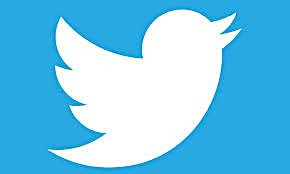Some American Responses to the Charlie Hebdo Massacre
 Sunday, January 11, 2015 at 5:40PM
Sunday, January 11, 2015 at 5:40PM “I am Charlie Hebdo.”
“I am not Charlie Hebdo.”
“It’s Obama’s fault, he’s a wimp.”
“Sure it was horrendous, but what about (innumerable other examples of terror or censorship)?
“Well, if those people would just not be quite so offensive…”
“Islam is a violent religion, unlike Christianity. Christian terrorists aren’t really Christians.”
-------
Such a range of American responses to this week’s violence in Paris, from Fox News to far left. The range reflects how polarized we are as a nation about religion, violence, speech and humor.
A few examples:
1) Fox News: Another Benghazi - Obama is a liar - It’s all about us – We’re next.
The reports on Fox “News” were, as usual, less on what actually happened and more about blaming Obama, both for lax security and lying. It was like the way they have flailed the Benghazi story; why won’t the President tell the truth about what really happened (well actually, in both cases, he did), why can’t he use the word terrorism to describe the events (well actually, he did.) And why is he such a wimp? Fox’s Gretchen Carlson fanned the flames with “Keep in mind this administration is more concerned about executive actions for manufacturing and even climate control today, and releasing Gitmo detainees. We now know many of those detainees go back to join the jihad. So at this crucial moment, after a horrific attack on one of our allies, will politics continue to trump reality?...Will the United States once again be next hit (by terrorism)?”
2) Nice White Well Meaning Moderates: can’t you just tone it down a bit?
 David Brooks, a smart but often smarmy right/moderate regular columnist for the New York Times titled his column, “I am Not Charlie Hebdo.” While condemning the attacks and affirming the value of free expression, he indulged in his frequent style of condescension:
David Brooks, a smart but often smarmy right/moderate regular columnist for the New York Times titled his column, “I am Not Charlie Hebdo.” While condemning the attacks and affirming the value of free expression, he indulged in his frequent style of condescension:
"In most societies, there’s the adults’ table and there’s the kids’ table. The people who read Le Monde or the establishment organs are at the adults’ table. The jesters, the holy fools and people like Ann Coulter and Bill Maher are at the kids’ table. They’re not granted complete respectability, but they are heard because in their unguided missile manner, they sometimes say necessary things that no one else is saying.
Healthy societies, in other words, don’t suppress speech, but they do grant different standing to different sorts of people. Wise and considerate scholars are heard with high respect. Satirists are heard with bemused semirespect. Racists and anti-Semites are heard through a filter of opprobrium and disrespect. People who want to be heard attentively have to earn it through their conduct."
This reminds me of what a lot of well meaning but stupid white people are saying about our epidemic of police violence against unarmed black young men: “Well, if those black young men would just behave better, not be in suspect places, go home at night, pull their pants up, be nicer….” Kids’ table indeed.
3) Islamophobia and Religious Double Standard
Many right wing commentators almost gloated and relished what they saw as more proof of Islam’s “essential” violence. Trying to counter that lie, some scholars of religion and left wing appreciators of the great diversity within Islamic cultures reposted the results of a study done a couple years ago about American’s attitudes toward Christians and Moslems who commit violence, and our sorry double standard.
In the study, more than 8-in-10 (83 percent) Americans said that self-proclaimed Christians who commit acts of violence in the name of Christianity are not really Christians. In contrast, less than half (48 percent) of Americans say that self-proclaimed Muslims who commit acts of violence in the name of Islam are not really Muslims. The study’s director noted that those who self-identify as white evangelical Protestants have the largest double standard:
"Among white evangelical Protestants, the gap is a staggering 47 percentage points: only 10 percent of evangelicals believe that a self-identified Christian perpetrators are really Christian, compared to 57 percent who believe that self-identified Muslim perpetrators are truly Muslim."
That statistic was born out this past week in the conservative Christian media.
4) Yes, horrible. But what about……?
Many leftish commentators mourned and condemned, but then they did the comparison exercise; why so much heat and outrage in this instance and not in others? For example, Michael Lerner, editor of the progressive Jewish Tikkun Magazine wrote:
"Why wasn’t the media] this interested in a bomb that went off outside the NAACP’s Colorado Springs headquarters the same day as they were highlighting the attack in Paris? Colorado Springs is home to some of the most extreme right-wing activists. It was a balding white man who was seen setting the bomb, some reports claim, and so the media described it as an act of a troubled “lone individual,” rather than as a white right wing Christian fundamentalist terrorist.
Few Americans have even heard of this incident.
Paris, January 11, 2015And when the horrific assassinations of 12 media people and the wounding of another 12 media workers resulted in justifiable outrage around the world, did you ever wonder why there wasn’t an equal outrage at the tens of thousands of innocent civilians killed by the American intervention in Iraq or the over a million civilians killed by the U.S. in Vietnam, or why President Obama refused to bring to justice the CIA torturers of mostly Muslim prisoners, thereby de facto giving future torturers the message that they need not even be sorry for their deeds (indeed, former Vice President Cheney boldly asserted he would order that kind of torture again without thinking twice)?"
5) Me, still in shock.
As for myself, I am still in shock, appalled, sad. A confirmed Francophile, I confess I probably am more outraged by this violence than the daily violence my own country inflicts world wide. How’s that for denial?
When I heard the news of the massacre, I happened to be reading a novel about Paris. I’m on a Hillary Mantel kick and am in the middle of her historical novel about the French Revolution, A Place of Greater Safety. I already had my Paris maps out to see where the Cordelier district was and where Danton and Robespierre lived. I only had to move my eye a bit from the 6th to 11th arrondissements to find the Charlie Hebdo headquarters. The plots have similar features. Parisians killing each other. Blood in the streets. People talking about being martyrs for a cause. Debates about free speech. The role newspapers play in democracy. Is this a revolution? Will Paris ever again be a place of safety?
Later that day I went to the Monterey Aquarium, where I volunteer every Thursday. I wear a badge that reads “Je parle Francais.” I was standing in the aviary and heard a woman speaking French. In halting French I said, “Je suis tres desolee pour votre tragedie. C’est incroyable et tragique. Aujourd’hui nous sommes Charlie.” I think she understood me; with tears in her eyes she said, “Merci.”
Copyright © 2015 Deborah Streeter











